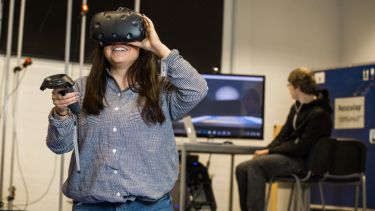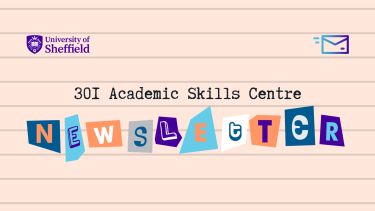Research Methods
A short guide to research methods.

Research design
It goes without saying that if you ask two kinds of questions you will get (at the very least) two different answers.
It follows from this that the fastest way to derail your research is to spend too little time designing any experiments and related research methods that you intend to use to produce data for analysis.
One of the best ways to develop your own research methodology is to spend time familiarising yourself with the range of approaches that have been taken by others undertaking research in similar areas.
What can you learn from their research design (including the limitations and shortcomings that they may have identified)?
Key issues to consider will include:
- Are you aiming to prove/disprove a hypothesis, or explore a more open question?
- What constitutes sufficient data for your research (whether experimental data or other forms of data such as primary sources)?
- How will you ensure that your data is valid? I.e. how confidently will you be able to report on the findings of your research?
- Is your data reliable? Have you been objective and would other researchers be able to replicate your project with the same results?
It is important to recognise that most (all?) research is imperfect. It is your job as a researcher to do your best to mitigate potential issues with your research, but also to recognise that your findings may include a number of limitations.
Some research may produce unexpected or negative results. Although that may feel frustrating or disappointing, it does not make your findings any less interesting! Identifying and explaining mistakes and issues is part and parcel of the research process, so be honest and save other researchers from repeating those mistakes in their future research.
The following is an overview of commonly-used research definitions, methods and things to watch out for.
Experimental research
Experimental research usually follows the principles of the scientific method:
- the researcher makes an observation to describe a problem.
- A testable hypothesis (i.e. prediction) is formulated.
- The hypothesis is tested experimentally.
- The hypothesis is revised or adapted in light of the findings.
Experimental research usually involves a variable that can be controlled by the researcher and a variable that can be compared. It is often (but not always) carried out in a controlled environment to ensure that the findings are as valid as possible.
Experimental research can be time and equipment intensive, so be sure to check that you will be able to access the appropriate apparatus, tools and laboratory space at the time when you will need it.
Sometimes, but not always, experimental research can be used to make absolute claims, i.e. to prove or disprove a hypothesis. More frequently, it will allow the researcher to refine and adapt a hypothesis and to identify further ways to test the hypothesis experimentally.
Quantitative research
Quantitative research deals with quantities; i.e. numerical data. Quantitative research usually involves the application of statistical analysis techniques to identify patterns and relationships in the data.
There are many issues to consider when you planning to generate quantitative data, such as the size and reliability of your sample. You will need to identify an appropriate statistical analysis technique and consider its implications for your data collection: what data will you need to be able to perform the analysis that you are aiming for?
Although qualitative research is driven by numbers and data, often using large data sets to improve reliability, it is important to recognise that it is rarely possible to draw empirical conclusions.
For more information on statistical analysis tools and techniques, visit the Maths and Statistics Help Service online resources.
Qualitative research
Qualitative research aims to look beyond numerical data to explore the nuances of a problem, or to investigate an area in greater depth. It tends to focus on words and language as a way to explore the multiplicity of perspectives that may be involved in the area of research.
Qualitative research may draw on a very small sample to explore individual experiences in great depth (for example through one or more interviews), or it may involve a very large sample to investigate a range of opinons (for example through a questionnaire or survey). As well as textual or oral data, qualitative research may include observation to generate visual data.
Sometimes qualitative data will be used on its own, for example to develop one or more case studies. However, often qualitative data will be analysed or 'coded' to produce numerical data that can be used to postulate wider conclusions about a number of participants.
There are lots of ways to collect qualitative data, each with their own advantages and disadvantages. For example:
| Method | Advantages | Disadvantages |
|---|---|---|
| Surveys | Easy to set up and share, may be able to reach large numbers of participants | Participants maybe self-selecting |
| Questionnaires | Easy to target specific groups | Participants maybe self-selecting; participants may not feel able to share honest opinions |
| Focus groups | Access to a range of opinions | Participants may not feel able to share honest opinions; difficult to recruit participants |
| Interviews | Able to explore a question in greater depth | Participants may not feel able to share honest opinions; difficult to recruit participants |
| Participant observation | Does not rely on individual testimony | Difficult to ensure consistent measurement |
And remember, all research involving living participants will be subject to ethical approval. For more information visit Research Services Ethics and Integrity pages here.
Mixed-Methods Research
Using critical theory
Critical theory is an approach to research that goes beyond the traditional formulations of quantitative and qualitative research to explore and challenge the socio-historical constructs of knowledge production.
Critical theory is not only about describing the way things are, but is about understanding why things are the way they are. It draws on an analysis of historical processes combined with observation and interpretation of primary sources and data to explore the structural relations, inequalities and repressions that have contributed to the esablishment of the status quo.
Your role as a critical researcher is to understand the discourses and paradigms that have shaped your particular area of study and how it intersects with other related areas. You will also need to unpack your own ideological baggage to understand how your experience may inform your approach to your research area. What are the assumptions or implicit biases that underlie your own belief systems?
Critical theory recognises that no research is ever truly objective. The best you can do as a researcher is to identify the theoretical, social and cultural underpinnings of your work and to acknowledge that your conclusions should be understood within that wider context.
Archival research
Archival research involves the study of materials held in collections both physical and digital around the world.
The University holds some unique and wonderful archives, such as the National Fairground Archive, the National Union of Mineworkers Energy Research Archive and collections of 18th-century playbills from the Theatre Royal, Drury Lane.
Although some archives can be accessed online, in many cases archives must be visited in person and documents ordered in advance to allow staff to access them and make them available to you. Each archive will have its own regulations and procedures and it is important to read and understand them before you visit to avoid wasting your trip.
Sometimes you will be asked to follow strict procedures to access and handle delicate or important documents, which may include using pencils rather than pens, bringing essential items only into the archive in a clear plastic bag or leaving all food, drink and electronic devices outside the reading room.
Working in archives can be an extremely rewarding and exciting experience that gives you first-hand access to documents or materials that may be extremely rare or little-viewed.

Be the first to hear about our new and upcoming workshops!
The 301 Academic Skills Centre newsletter is a fortnightly email for study skills, mathematics and statistics.
Be the first to find out about our:
- new and upcoming workshops,
- special events and programmes, and
- new and relevant online materials and resources.
